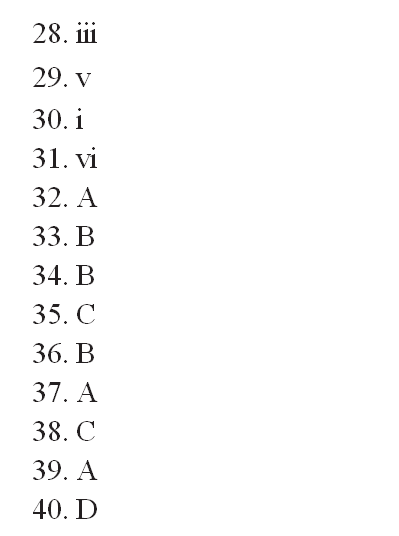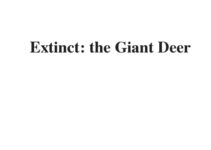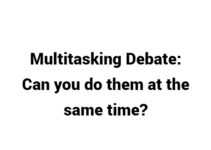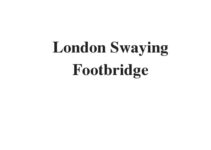Table of Contents
Passage
A In 1660s,while there are few accurate statistics for child mortality in the preindustrial world, there is evidence that as many as 30 percent of all children died before they were 14 days old. Few families survived intact. All parents expected to bury some of their children and they found it difficult to invest emotionally in such a tenuous existence as a newborn child. When the loss of a child was commonplace, parents protected themselves from the emotional consequences of the death by refusing to make an emotional commitment to the infant. How else can we explain mothers who call the infant “it,” or leave dying babies in gutters, or mention the death of a child in the same paragraph with a reference to pickles?
B One of the most important social changes to take place in the Western world in 18th century was the result of the movement from an agrarian economy to an industrial one. Increasingly, families left the farms and their smalltown life and moved to cities where life was very different for them. Social supports that had previously existed in the smaller community disappeared, and problems of poverty, crime, sub-standard housing and disease increased. For the poorest children, childhood could be painfully short, as additional income was needed to help support the family and young children were forced into early employment. Children as young as 7 might be required to work fulltime jobs, often under unpleasant and unhealthy circumstances, from factories to prostitution. Although such a role for children has disappeared in most economically strong nations, the practice of childhood employment has hardly disappeared entirely and remains a staple in many undeveloped nations.
C Over the course of the 1800s, the lives of children in the Unites States began to change drastically. Previously, children in both rural and urban families were expected to take part in the everyday labor of the home, as the bulk of manual work had to be completed there. However, establishing a background the technological advances of the mid-1800s,coupled with the creation of a middle class and the redefinition of roles of family members, meant that work and home became less synonymous over the course of time. People began to buy their children toys and books to read. As the country slowly became more dependent upon machines for work, both in rural and in urban areas, it became less necessary for children to work inside the home. This trend, which had been rising slowly over the course of the nineteenth century, took off exponentially after the Civil War, with the beginning of the Industrial Revolution. John Locke was one of the most influential writers of his period. His writings on the role of government are seen as foundational to many political movements and activities, including the American Revolution and the drafting of the Declaration of Independence. His ideas are equally foundational to several areas of psychology. As the father of “British empiricism,” Locke made the first clear and comprehensive statement of the “environmental position” and, by so doing, became the father of modern learning theory. His teachings about child care were highly regarded during the colonial period in America.
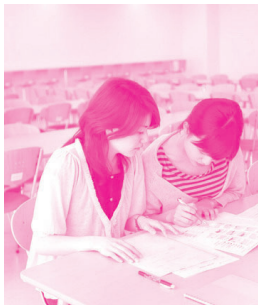
D Jean Jacquesd Rousseau lived during an era of the American and French Revolution. His works condemn distinctions of wealth, property, and prestige. In the original state of nature, according to Rousseau, people were “noble savages”,innocent, free and uncorrupted. Rousseau conveyed his educational philosophy through his famous novel Emile, in 1762,which tells the story of a boy’s education from infancy to adulthood. Rousseau observed children and adolescents extensively and spoke of children’s individuality, but he based much of his developmental theory on observation in writing the book, and on the memories of his own childhood. Rousseau contrasts children to Developmental Psychology in Historical Perspective adults and describes age-specific characteristics. Johan Heinrich Pestalozzi lived during the early stages of industrial revolution, he sought to develop schools would nurture children’s development. He agreed with Rousseau that humans are naturally good but were spoiled by a corrupt society. Pestalozzi’s approach to teaching can be divided into the general and special methods. The theory was designed to create a emotionally healthy homelike learning environment that had to be in place before more specific instruction occurred.
E One of the best documented cases of all the so-called feral children concerned a young man who was captured in a small town in the south of France in 1800, and who was later named Victor. The young man had been seen in the area for months before his final capture-pre-pubescent, mute, and naked, perhaps 11 or 12 years old, foraging for food in the gardens of the locals and sometimes accepting their direct offers of food. Eventually he was brought to Paris, where it was hoped that he would be able to answer some of the profound questions about the nature of man, but that goal was quashed very early. Jean-MarcGaspard Itard, a young physician who had become interested in working with the deaf, was more optimistic about a future for Victor and embarked on a five-year plan of education to civilize him and teach him to speak. With a subsidy from the government, Itard spent an enormous amount of time and effort working with Victor. He was able to enlist the help of a local woman, Madame Gu erin, to assist in his efforts and provide a semblance of a home for Victor. But, after five years and despite all of his efforts, Itard considered the experiment to be a failure. Although Victor had learned some elementary forms of communication, he never learned the basics of speech, which, for Itard, was the goal. Victor’s lessons were discontinued, although he continued to live with Madame Gu erin until his death, approximately at the age of 40.
F Other educators were beginning to respond to the simple truth that was embedded in the philosophy of Rousseau. Identifying the stages of development of children was not enough. Education had to be geared to those stages. One of the early examples of this approach was the invention of the kindergarten (“the children’s garden”) — a word and a movement created by Friedrich Froebel in 1840, a German-born educator. Froebel placed particular emphasis on the importance of play in a child’s learning. His invention, in different forms, would eventually find its way around the world. His ideas about education were initially developed through his association with Johann Heinrich Pestalozzi. Froebel spent five years teaching at one of Pestalozzi’s model schools in Frankfort, and later he studied with Pestalozzi himself. Eventually he was able to open his own schools to test his educational theories. One of his innovative ideas was his belief that women could serve as appropriate educators of young children-an unpopular view at the time. At the age of 58, after almost four decades as a teacher, Froebel introduced the notion of the kindergarten. It was to be a haven and a preparation for children who were about to enter the regimented educational system. A cornerstone of his kindergarten education was the use of guided or structured play. For Froebel, play was the most significant aspect of development at this time of life. Play served as the means for a child to grow emotionally and to achieve a sense of self-worth. The role of the teacher was to organize materials and a structured environment in which each child, as an individual, could achieve these goals. By the time of Froebel’s death in 1852, dozens of kindergartens had been created in Germany. Their use increased in Europe and the movement eventually reached and flourised in the United States in 20th century.
Questions
Questions 28-31 The reading passage has seven paragraphs, A-E Choose the correct heading for paragraphs A-E from the list below. Write the correct number, i-vii, in boxes 28-31 on your answer sheet.
List of Headings
i. Reasons of unusual experiments implemented by several thinkers
ii. Children had to work to alleviate burden on family
iii. Why children are not highly valued
iv. Children died in hospital at their early age
v. Politics related philosophy appeared
vi. Creative learning method was applied on certain wild kid
vii. Emerge and spread of called kindergarten
28 Paragraph A
Example Paragraph B ii Children have to work
29 Paragraph C
30 Paragraph D
31 Paragraph E
Questions 32-35 Use the information in the passage to match the time (listed A-C) with correct event below. Write the appropriate letters A-F in boxes 32-35 on your answer sheet.
A 18th century
B 19th century
C 20th century
32 need for children to work
33 rise of middle class
34 emergence of a kindergarten
35 the kindergarten in the spread around US
Questions 36-40 Use the information in the passage to match the people (listed A-D) with opinions or deeds below. Write the appropriate letters A-D in boxes 36-40 on your answer sheet.
A Jean Jacquesd Rousseau
B Jean-Marc-Gaspard Itard
C Johan Heinrich Pestalozzi
D Friedrich Froebel
36 was not successful to prove the theory
37 observed a child’s record
38 promoted some practical activities between school and family
39 corruption is not a characteristic in people’s nature
40 responsible for the increase in the number of a type of school
Answers
